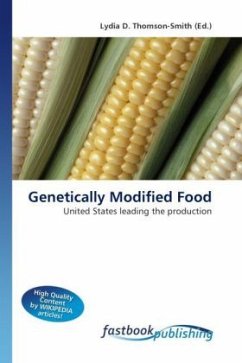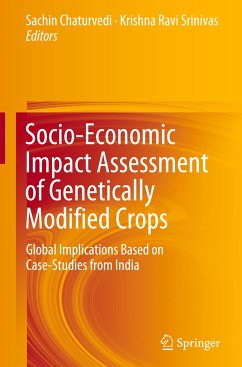
Genetically modified food
The savior of the earth's explosive populationOr the black glamor of gradual death?!
Versandkostenfrei!
Versandfertig in 6-10 Tagen
29,99 €
inkl. MwSt.

PAYBACK Punkte
15 °P sammeln!
Modified foods (GM foods), also known as genetically engineered foods (GE foods), or bioengineered foods are foods produced from organisms that have had changes introduced into their DNA using various methods of genetic engineering. Genetic engineering techniques allow for the introduction of new traits as well as greater control over traits when compared to previous methods, such as selective breeding and mutation breeding. The discovery of DNA and the improvement of genetic technology in the 20th century played a crucial role in the development of transgenic technology. In 1988, genetically ...
Modified foods (GM foods), also known as genetically engineered foods (GE foods), or bioengineered foods are foods produced from organisms that have had changes introduced into their DNA using various methods of genetic engineering. Genetic engineering techniques allow for the introduction of new traits as well as greater control over traits when compared to previous methods, such as selective breeding and mutation breeding. The discovery of DNA and the improvement of genetic technology in the 20th century played a crucial role in the development of transgenic technology. In 1988, genetically modified microbial enzymes were first approved for use in food manufacture. Recombinant rennet was used in few countries in the 1990s. Commercial sale of genetically modified foods began in 1994, when Calgene first marketed its unsuccessful Flavr Savr delayed-ripening tomato. Most food modifications have primarily focused on cash crops in high demand by farmers such as soybean, maize/corn, canola, and cotton. Genetically modified crops have been engineered for resistance to pathogens and herbicides and for better nutrient profiles.












